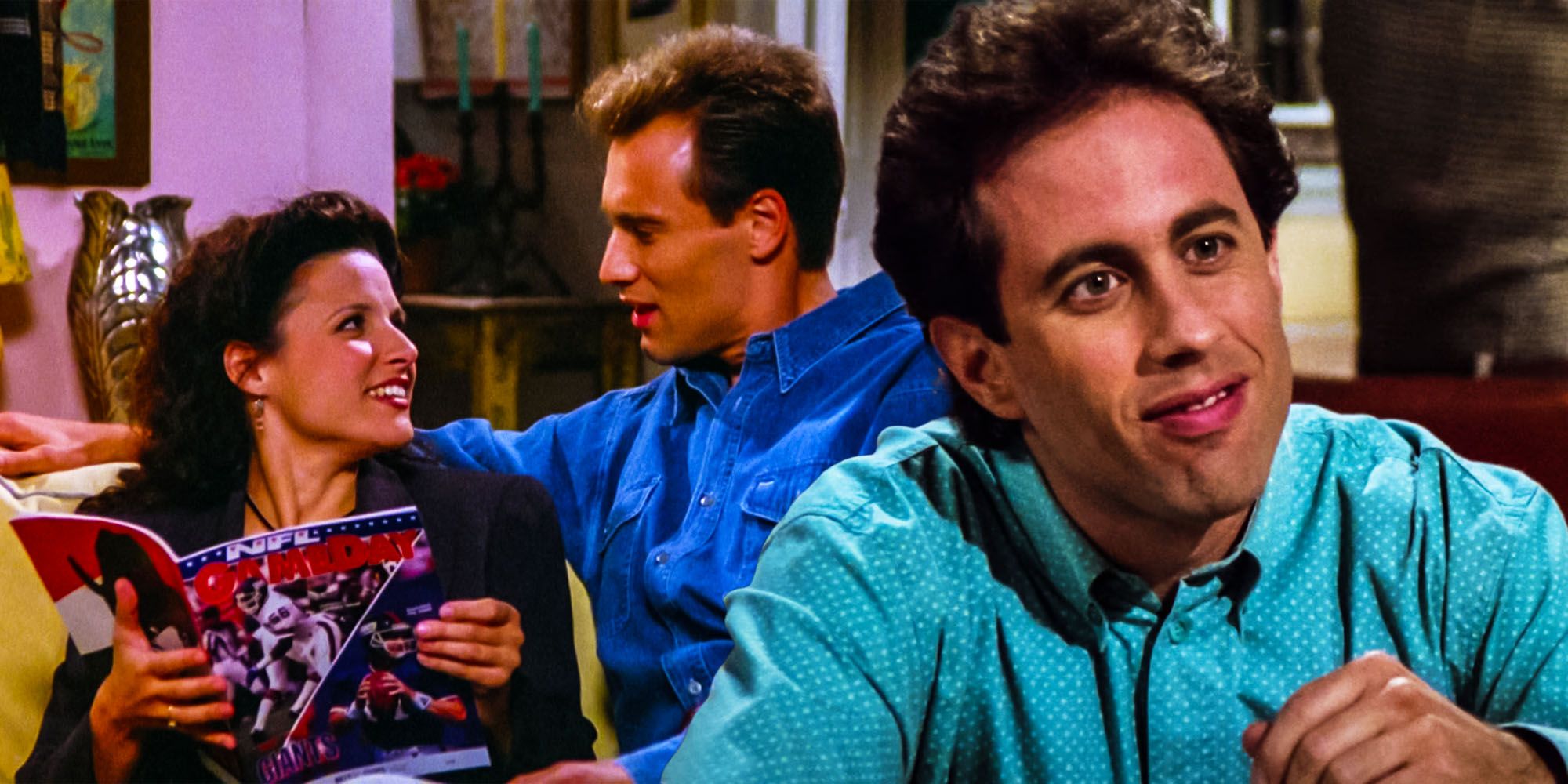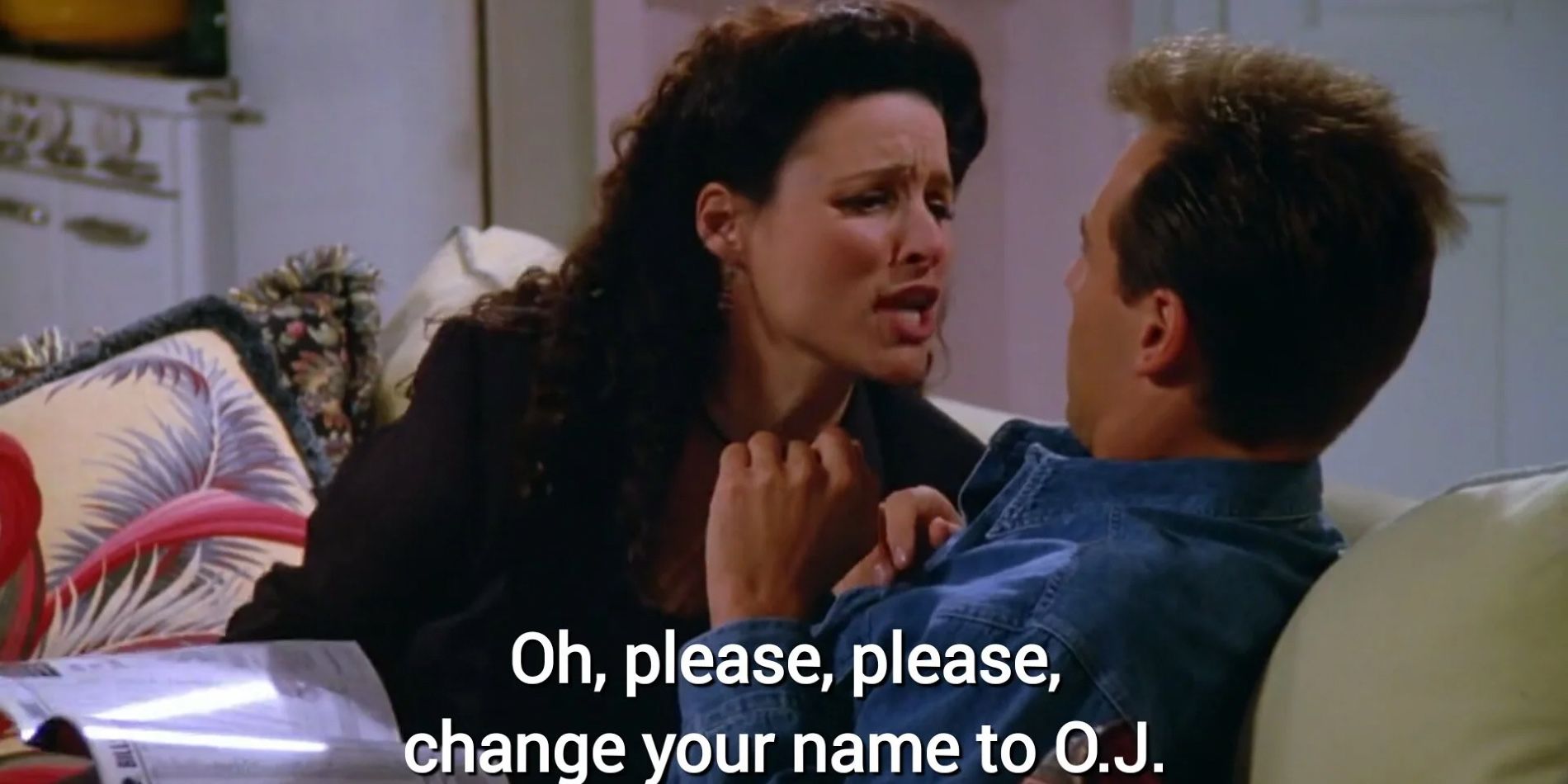Seinfeld's OJ Simpson Jokes: How They Predicted The Trial - & More!
Could a seemingly innocuous sitcom episode from the early 1990s hold a prescient commentary on one of the most sensationalized trials in American history? Indeed, the seemingly innocuous episode of "Seinfeld" titled "The Masseuse," which aired months before the O.J. Simpson murder trial, contains eerily foreshadowing details that speak volumes about societal anxieties surrounding fame, identity, and the media circus that was to come.
The cultural landscape of the early 1990s was ripe for a reckoning. The decade was marked by both a fascination with celebrity and a growing cynicism toward the institutions that once held authority. The rise of 24-hour news channels, and the emergence of tabloid journalism, fueled the public's appetite for scandal and the personal lives of the rich and famous. The O.J. Simpson case, with its high-profile players, dramatic twists, and unrelenting media coverage, became the ultimate embodiment of this cultural shift. It wasn't just a murder trial; it was a media event, a cultural phenomenon that captivated the nation and continues to resonate today. The trial of the century, as it was dubbed, became a lens through which to examine race relations, the justice system, and the power of celebrity.
The "Seinfeld" episode, which aired on November 18, 1993, cleverly interweaves several themes that would later be central to the O.J. Simpson saga. The episode features a storyline where Elaine's boyfriend, named Joel Rifkin, faces an identity crisis as the trial approaches. She suggest he change his name to avoid sharing a name with a serial killer. This mirrors the larger narrative of the Simpson case, where the defendants name became synonymous with both athletic achievement and, later, accusations of murder. This preemptive concern about association and the potential for reputational damage foreshadows the societal impact of the Simpson case long before the charges were even filed.
In this episode, Jerry dates a masseuse. Kramer and George both receive massages, but Jerry is left out. This simple plot point highlights the contrast of haves and have-nots, which is often a subtle theme in "Seinfeld," and is brought to the forefront when examining the nuances of the O.J. Simpson story, with its inherent tension between celebrity privilege and the repercussions of alleged criminal actions. The fact that it was Jerry, the central character, who was denied this simple comfort adds another layer of symbolic meaning. In the real-world case, Simpson's fame and wealth afforded him resources and a legal team that many others accused of similar crimes did not possess.
The episode's seemingly casual exploration of these themes identity, reputation, and the public's perception of individuals sets the stage for the much grander drama that would unfold in the courtroom and in the media. As the case unfolded, the media relentlessly dissected every aspect of Simpson's life. His past, his relationships, and even his choice of clothing were all fodder for the news cycle. The show's ability to anticipate this phenomenon, albeit in a humorous way, is quite remarkable.
Consider also the character of Kramer, who, in a parallel narrative to Simpson's case, is involved in various schemes and misadventures. One memorable line spoken by Kramer, referencing a situation akin to the actions of A.C. Cowlings, who drove Simpson in the famous white Ford Bronco, adds another layer of resonance, although it may have been unintentional. These sly jokes, subtly woven into the narrative, reflect the societal obsession with celebrity culture, and the fascination with scandal, which, once again, became one of the central components of the Simpson trial.
The "Seinfeld" episode, then, is more than just a collection of jokes and comedic observations. It's a cultural artifact, a subtle commentary on the anxieties and contradictions of its time. It anticipates the Simpson case's most significant themes the intersection of celebrity, race, and the justice system in a way that is both insightful and thought-provoking. It reminds us that even the seemingly mundane can hold a mirror to the most momentous events in history. It's a testament to the power of art to reflect and, in some cases, even foreshadow the complexities of the human experience. The show's ability to tap into the zeitgeist of the early 1990s, its understanding of the public's fascination with the lives of the rich and famous, and its ability to use humor to explore complex social issues are all on full display in "The Masseuse." It's a prime example of how even a seemingly simple sitcom can hold a deeper significance.
The influence of the O.J. Simpson trial reverberated far beyond the courtroom. It influenced everything from television shows to documentaries. It was referenced in everything. Even "It's Always Sunny in Philadelphia" offered its own satirical take on the case. The trial served as a source of inspiration for numerous filmmakers, writers, and artists, prompting them to grapple with its implications and complexities.
It is worth noting that several details of the fictional narrative surrounding the "Seinfeld" episode mirror certain aspects of the O.J. Simpson case, including, the fact that the episode mentioned O.J. and a sports celebrity, as well as the presence of a high-profile trial during that time. This suggests that the show's writers were already sensitive to the potential for the impending trial to captivate the public's attention.
Beyond "Seinfeld," the O.J. Simpson trial has left an indelible mark on popular culture, including numerous television shows and documentaries that have tried to provide perspective on the case. From David Lynch to Ben Stiller to Jerry Seinfeld to the actual prosecutor herself, Marcia Clark, are among the examples that showcase the pervasive impact of the O.J. Simpson trial on the entertainment industry.
While "Seinfeld" might not have predicted the exact course of events in the O.J. Simpson trial, the episode serves as an interesting reflection of the cultural milieu that shaped that era. By exploring themes such as identity, public perception, and celebrity, the show inadvertently captured some of the underlying tensions that would soon explode onto the national stage. The O.J. Simpson trial was more than just a legal proceeding; it was a cultural phenomenon that continues to spark conversations and debates even today.
Ultimately, this convergence of events highlights the power of cultural texts, even seemingly trivial ones, to reflect and anticipate the larger societal shifts. The show's writers, in their own humorous way, tapped into the anxieties and obsessions of the time, creating a snapshot of a society that was rapidly changing.
Let's not forget, also, the impact of the media. The constant barrage of news coverage, the intense scrutiny of every detail, the blurring of the lines between fact and opinion. The trial's media coverage became a spectacle in itself. This is a phenomenon that has been examined and re-examined ever since. The jurors, the public, and even those who were not directly involved were all influenced by the information they were given.
The "Seinfeld" episode, then, can be seen as a microcosm of the larger cultural landscape. It reflects the anxieties and contradictions of its time, its exploration of identity and public perception. The show's writers, in their own humorous way, tapped into the obsessions of the time, creating a snapshot of a society that was rapidly changing.
In the end, the O.J. Simpson case serves as a reminder of the enduring complexities of human nature, the power of media, and the enduring ability of art to reflect and even anticipate the complexities of the world around us.


